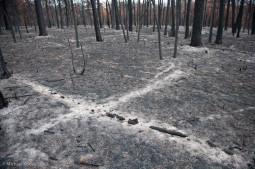
Clean Water Act, Then and Now (start time: 3:38): Two weeks ago was the 50th anniversary of the Clean Water Act. The landmark law set out to clean up the nation’s lakes, rivers and streams, and to safeguard the water supply for humans throughout the country. While there’s been some progress since the act was signed in 1972, many view the law as a mixed bag, both nationally and here in Colorado. By some estimates, at least half of the country’s rivers and streams do not meet the standard of the Clean Water Act. The legislation also faces new threats, including one from the U.S. Supreme Court. Host Susan Moran interviews two experts on the topic: John Flesher, a correspondent at the Associated Press; and Danny Katz is executive director of CoPIRG, which is part of the USPIRG network.
Colorado resources:
* CoPIRG new report on industrial polluters
* CoPIRG report Wasting Our Waterways
* State bill tackling lead in schools’ drinking water
Host & Producer: Susan Moran
Executive Producer: Susan Moran
Engineer: Shannon Young
Headline contributor: Benita Lee
Listen to the show here:
Podcast: Play in new window | Download (Duration: 28:06 — 25.7MB)
Subscribe: RSS





